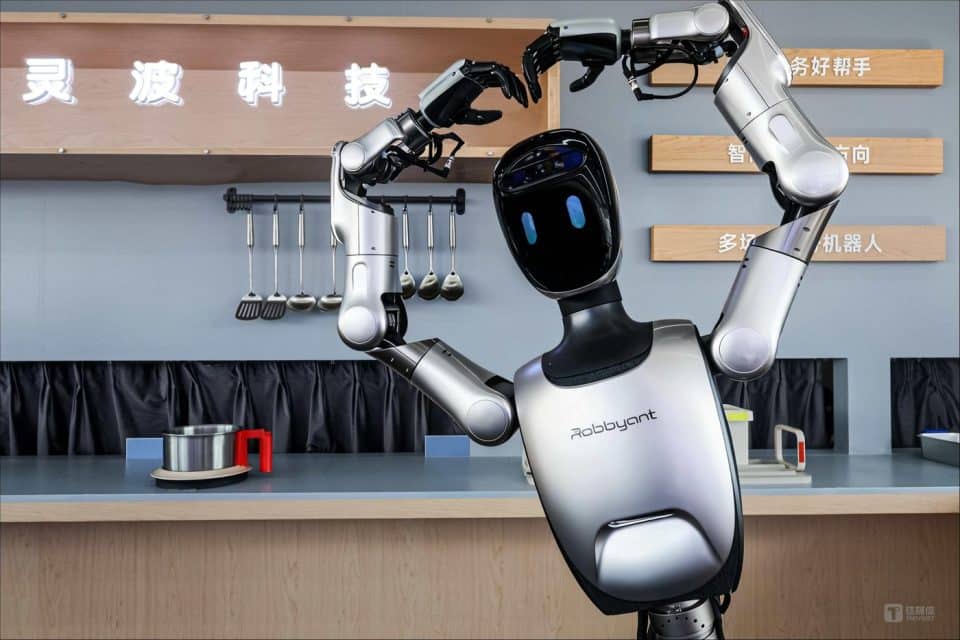文章来源:钛媒体
Ant Linbo R1 Robot
AsianFin -- Apps may one day disappear altogether, replaced by artificial intelligence agents capable of handling tasks end to end, according to Han Xinyi, CEO of Ant Group.
Speaking at the opening ceremony of the 2025 Inclusion·Bund Conference on Thursday, Han argued that the rapid evolution of large language models could fundamentally reshape the future of software. 「In the future, there may be no need for apps at all—AI agents will be able to handle everything,」 Han said. 「If agents can get all the work done, why would we still need to develop apps? Large models may eventually 『consume』 all software.」
Han outlined two reasons for this potential transformation. Traditional software exists to solve deterministic problems through predefined methods, but this is precisely what large models excel at, now with greater flexibility. Additionally, the industry is already seeing early examples of new software generating intelligent, agent-driven solutions independently—an imperfect but accelerating trend.
Running from September 10 to 13 at Shanghai』s Huangpu Expo Park, the annual Bund Conference gathered global innovators, technologists, and investors. This year』s edition featured insights from leading figures across disciplines, including Richard Sutton, the 2024 Turing Award winner and widely regarded as the 「father of reinforcement learning」;
Wang Jian, founder of Alibaba Cloud and director of Zhijiang Lab; Zhang Hongjiang, partner at Source Code Capital and foreign member of the U.S. National Academy of Engineering; Wang Xingxing, founder and CEO of Unitree Robotics; Yuval Noah Harari, author of the Sapiens series; and Zhu Xiaohu, managing partner of GSR Ventures. Their discussions highlighted how AI is reshaping industries from robotics to finance and how China is positioning itself to capture emerging opportunities.
Unitree』s Wang Xingxing reflected on his career, noting that his earlier exclusive focus on robotics made him miss the AI wave. 「At present, the field of putting AI to work is still a barren desert—there may be a few blades of grass here and there, but the real explosive, large-scale growth has yet to arrive,」 he said, suggesting the biggest breakthroughs are still to come.
In a notable showcase, Lingbo Technology, an Ant Group subsidiary, unveiled its intelligent service robot R1. The R1 integrates multimodal interaction, environmental perception, and AI decision-making, and was demonstrated in restaurant scenarios. From recognizing dishes to picking them up and plating them, the robot completed the entire service process. Ant said the ultimate goal is to expand robotics into households and everyday life, underscoring the group』s broader ambitions in AI-enabled hardware.
GSR Ventures』 Zhu Xiaohu reminded the audience that despite the AI boom, the fundamentals of building enduring businesses remain unchanged. 「Startups in the AI era are not fundamentally different from those in the PC Internet or mobile Internet eras,」 Zhu said. 「Companies that can truly survive and thrive still need to return to the essence of business.」
He added that many AI startups faltering this year have failed due to weak user retention rather than lack of technology. Zhu noted that most of the fastest-growing B2B firms remain based in the U.S., but he sees huge potential for consumer-facing AI applications in China, where mass adoption could generate new market leaders.
Han』s prediction that large models might 「consume」 traditional software highlights growing debate in the tech community about whether AI agents will augment existing apps or replace them altogether. While some industry veterans caution that AI tools remain far from perfect, the rapid pace of development—and corporate showcases such as Ant』s R1 robot—suggest a future where users may increasingly interact with tasks through conversational agents rather than standalone applications.
As AI continues to converge with robotics, cloud services, and consumer applications, the Bund Conference underscored that the global race is no longer about whether AI will transform industries—but how fast, and who will lead.
Wang Jian: The Choice Between Open-Source and Closed-Source Models Has Become a Key Variable in the U.S.-China AI Race
AI openness and international competition are set to define the next decade of technological advancement, according to Wang Jian, academician of the Chinese Academy of Engineering, founder of Alibaba Cloud, and director of Zhijiang Laboratory. Speaking at the Bund Summit on September 11, Wang argued that the debate over open-source versus closed-source AI models has become the key variable in the China-U.S. AI rivalry. He emphasized that openness in AI—particularly regarding model weights, data, and computing resources—is essential for driving industry-wide innovation.
「Open models mean you no longer need to expend massive computing resources to redo what someone else has already done,」 Wang explained. 「Opening up resources—especially data and computing power—is the indispensable environment that propels AI forward. Simply releasing code is not enough.」 He drew parallels to the software era, noting that the open-sourcing of Netscape had been a watershed moment that accelerated development across the internet.
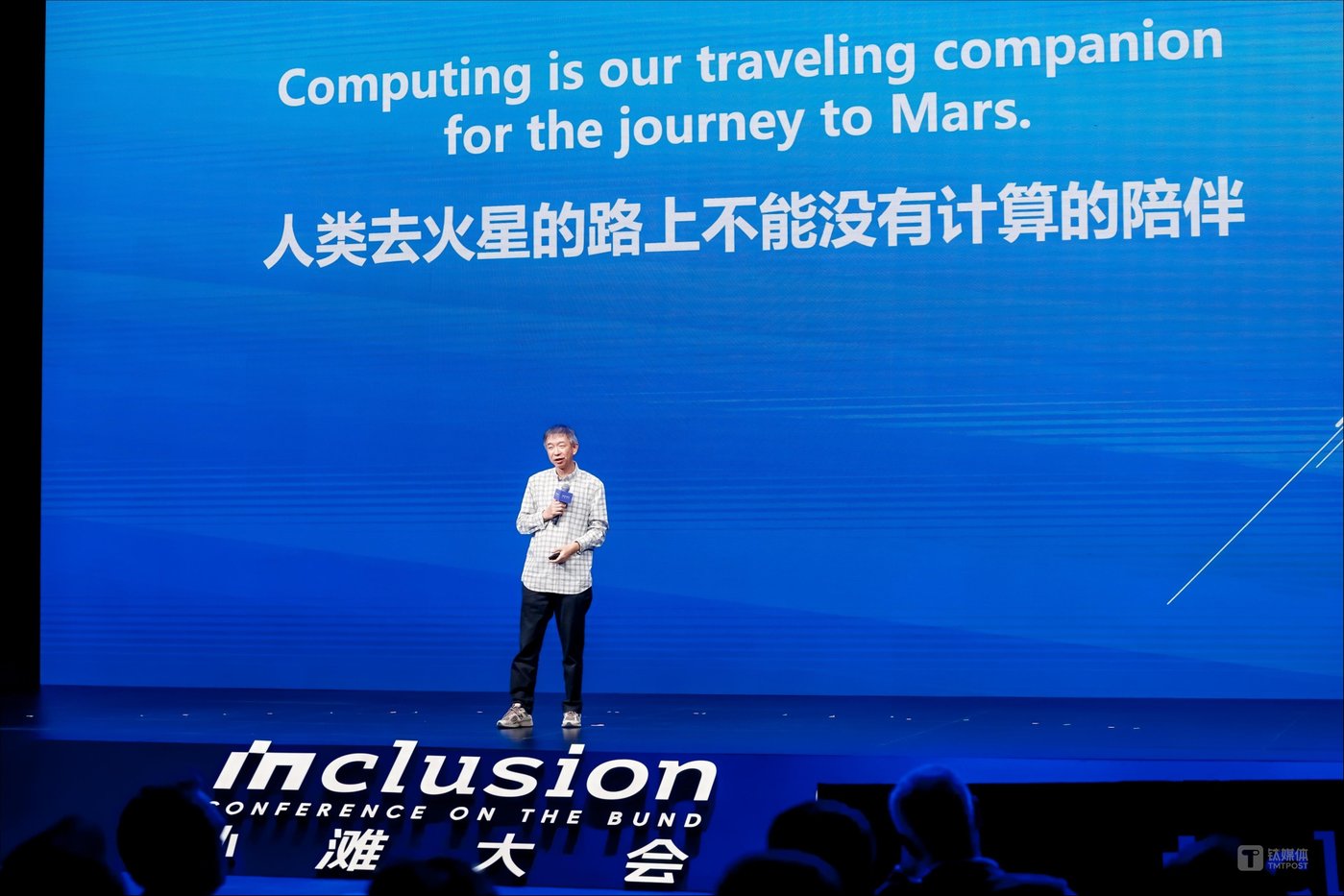
Wang also noted recent milestones in AI infrastructure and investment. According to a report by Jefferies, China』s four major cloud providers—Alibaba Cloud, ByteDance Volcano Engine, Tencent Cloud, and Baidu Intelligent Cloud—invested a combined $45 billion in the past year, while U.S. giants Meta, Amazon, Alphabet, and Microsoft plan $325 billion in AI infrastructure spending, a 46% increase from 2024.
Public data shows that global AI venture capital reached approximately $90 billion in the second quarter of 2025, with 92% of executives surveyed by McKinsey planning to increase AI investment over the next three years.
Wang also unveiled his vision for AI in space. On May 14, Zhijiang Lab launched 12 satellites carrying a complete 8-billion-parameter AI model, marking the first deployment of such a system in orbit. The 「Three-Body Computing Constellation」 enables satellites to process data independently while maintaining interconnectivity, opening new opportunities for AI in deep space exploration. Wang indicated plans to make these satellites accessible globally, supporting research that could eventually extend to the L5 point in the solar orbit, 150 million kilometers from both Earth and the Sun.
「AI must not be absent from space due to a lack of computing power,」 Wang said. 「Only by sending AI and computing power into space can humanity truly step beyond Earth. The coming era is incredibly exciting. On humanity』s journey to Mars, we cannot be without the companionship of computing and AI. This is what makes the next ten or even twenty years so thrilling.」
Zhang Hongjiang: Significant Gap in AI Computing Power Reserves Between China and the U.S.
At the main forum of the Bund Conference, Zhang Hongjiang, Investment Partner at Source Code Capital, said that this year marks a turning point in the widespread adoption of large language models.
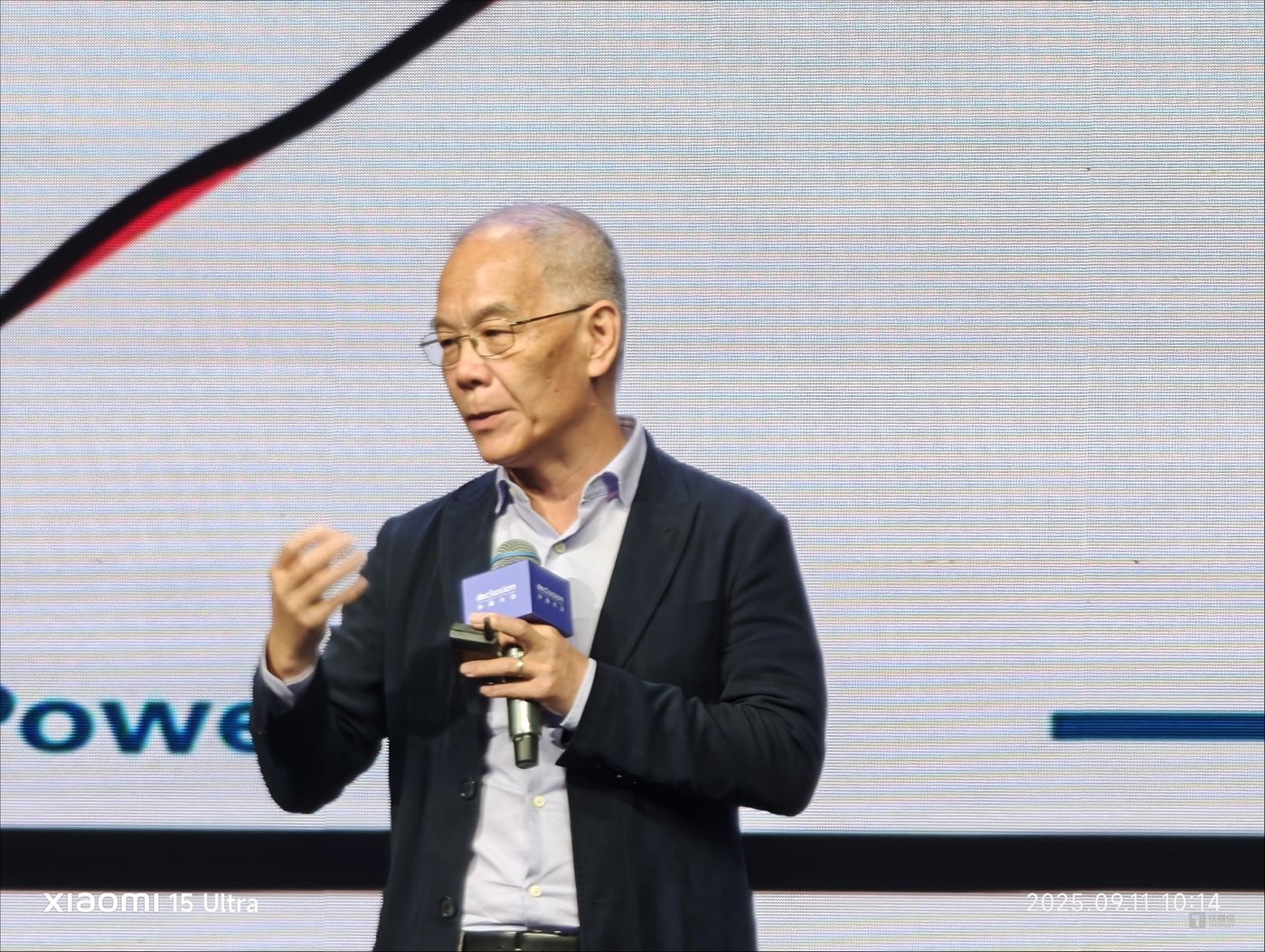
Since the release of ChatGPT two years ago and the emergence of DeepSeek earlier this year, four clear trends have emerged in the global large model industry:
- Large models will impact many highly important applications in the future, with search being the most prominent;
- Applications related to large models are evolving from problem-solving tools to AI assistants and AI companions;
- The advent of the DeepSeek model is driving up demand for computing power, and the need for computation in large models will continue to scale up;
- The ability to build large-scale computing power systems within a single IDC (Internet Data Center) is becoming increasingly crucial.
Zhang refers to the ecosystem driven by models—including underlying chips, the entire cloud computing industry, electricity, and the energy sector—as the computing power system ecosystem (AI』s Industrial Scaling Up). Currently, the construction of IDC facilities in the United States is advancing rapidly, which serves as a reminder that we must quickly scale up in chip and IDC development.
Zhang noted that after the release of DeepSeek R1, the cost was only a fraction—just a few percent—of the world』s best inference models at the time, yet its performance was very close. This demonstrates that as costs decrease, demand for such resources will increase even more dramatically.
He also pointed out that since the launch of ChatGPT, in just over two years, by March of this year, ChatGPT』s daily active users had already reached nearly 30% of that of search engines, indicating that large models have become part of everyday life. Furthermore, whether it』s OpenAI』s ChatGPT or other platforms, companies across the board are accelerating their adoption of large models.
AI was once our assistant, but that phase was brief. Very soon, AI will become our partner. Zhang pointed out that AI will have its own planning and actions, marking a new type of relationship between humans and machines, between humans and models. In the future, Agents will replace enterprise processes and reshape the structure of human organizations and employment.
Zhang mentioned that the planning capabilities of AI Agents are growing exponentially, ushering in what he calls Moore』s Law 3.0. On one hand, if we use task length as the benchmark for measuring capability, Agent capabilities double every seven months. On the other hand, as the capabilities of foundational models improve, the scaling law for Agents will accelerate even further.
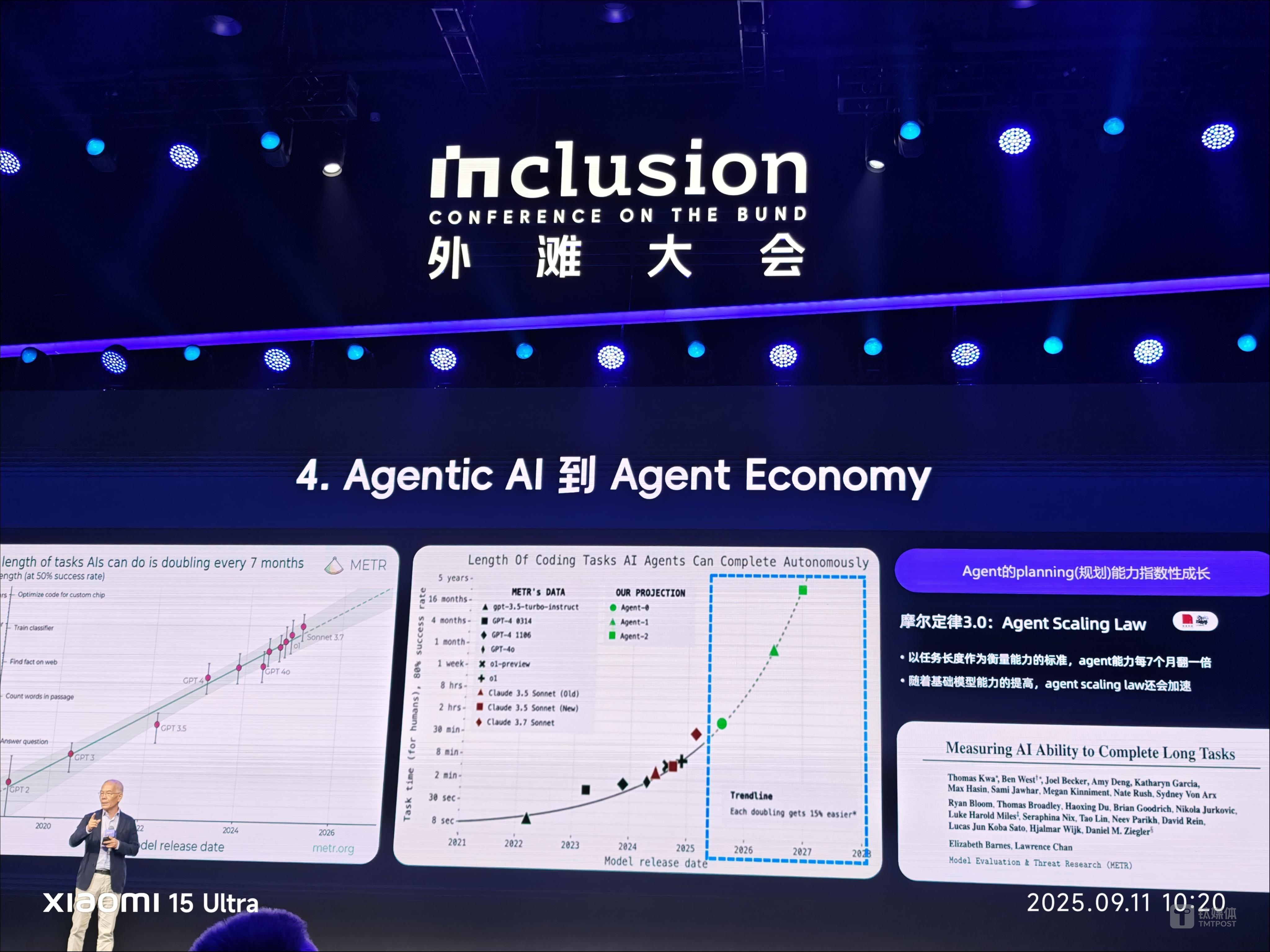
Finally, Zhang shared his thoughts on the development of Agents: when a person and a group of Agents form a company, it will bring about an unprecedented leap in efficiency. However, this also calls for society to reflect on changes in youth employment, social structure, and the education system. Agentic AI is fundamentally changing the future of human organizational structures and employment.
Nearly 40% of jobs worldwide will be affected by AI; in developed economies, about 60% of jobs may be impacted; and by 2045, around 50% of jobs will be taken over by AI. Zhang pointed out that everyone needs to start planning and taking action to address the risks brought by AI, as humanity may face challenges ranging from structural unemployment to existential crises.
Wang Xingxing: My Biggest Regret Is Not Learning AI Technology Earlier
After announcing the company』s IPO plans, Unitree Robotics founder and CEO Wang Xingxing made his first public appearance at the Bund Conference, sharing his insights on the opportunities and challenges facing the robotics industry in the era of large models.
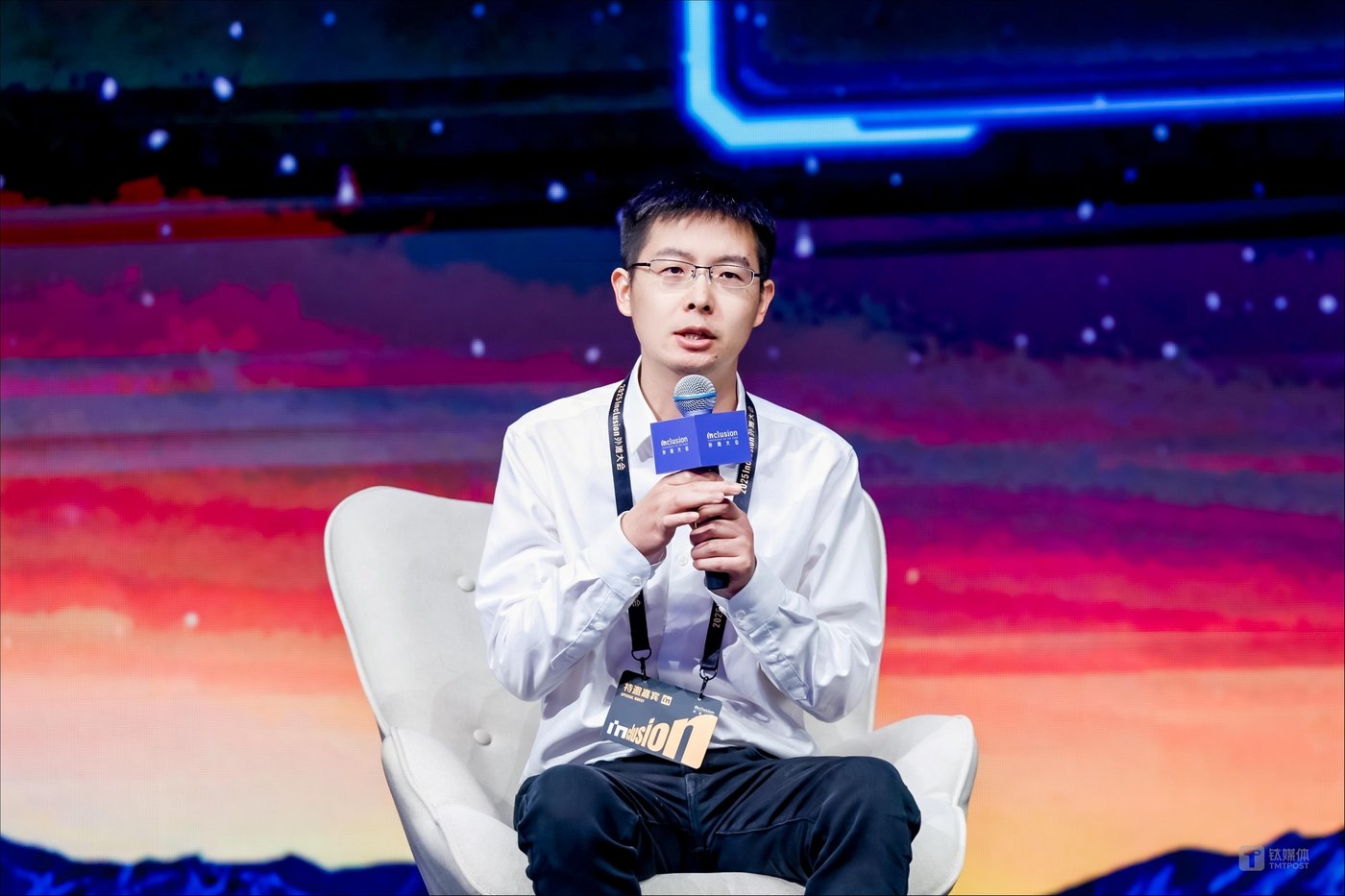
Wang said that he has been deeply interested in robotics since childhood. However, the thing he regrets most is that in 2011, he was mainly focused on robotics and missed out on AI. The rapid development of AI in recent years has given him another opportunity to pursue this direction.
「Now, AI can write articles and create artwork better than 99.99% of people. However, when it comes to actually putting AI to work—in robots—the field is still a barren desert. There might be a few small sprouts here and there, but the real explosive, large-scale growth has yet to arrive,」 Wang Xingxing said.
In fact, large AI models are trained on massive amounts of readily available text, images, and videos from the internet, while data from the physical world is relatively scarce. The general consensus in the humanoid robotics industry is that the biggest bottleneck for embodied intelligence is the lack of sufficient data.
Wang revised his previous view on the challenges facing embodied intelligence, acknowledging that both data and model architecture remain significant hurdles for robotics. At the World Robot Conference on August 9, he had argued that data was plentiful and the real issue lay in developing model architectures suited for embodied intelligence. Now, he emphasizes that the industry faces substantial challenges in collecting high-quality robot data, determining what types of data are necessary, and defining the appropriate scale for training models.
「I』m not saying data isn』t important. Previously, I meant that the industry focuses heavily on data issues but pays less attention to models,」 Wang explained. 「Right now, both data and models are core challenges for robotics.」
On organizational management, Wang noted that as Unitree expands, collaboration efficiency can decline, requiring new approaches to team management. 「In the pure AI field, small teams with a few top-tier talents can achieve explosive innovation,」 he said. 「The biggest problem for companies today—besides the obvious shortage of talent—is optimizing team collaboration as organizations scale.」
Despite these challenges, Wang remains optimistic. He sees the current era as a golden opportunity for young innovators, with AI tools enabling the rapid realization of new ideas. He envisions one of the ultimate goals of AI as a robot capable of autonomous perception, decision-making, and interaction with the physical world—a 「new species」 of intelligence. For AI-native entrepreneurs, success will require tightly integrating model capabilities with hardware to tackle complex, real-world problems.
「There are still challenges ahead, including high-quality data collection and advancements at the model and algorithm levels,」 Wang said. 「We are still on the eve of a true large-scale explosion where AI can be fully deployed and put to work. Personally, I find this era incredibly exciting.」
Zhu Xiaohu: When Investing in AI Projects, Look at User Retention—The Next ByteDance Is Coming
At the main forum of the Bund Conference on September 11, during the industry roundtable themed 「Breakthrough and Restructuring: The Implementation of Large Models in Industry」, Zhu Xiaohu, Managing Partner at GSR Ventures, shared some key insights and trends in the AI industry from an investor』s perspective.
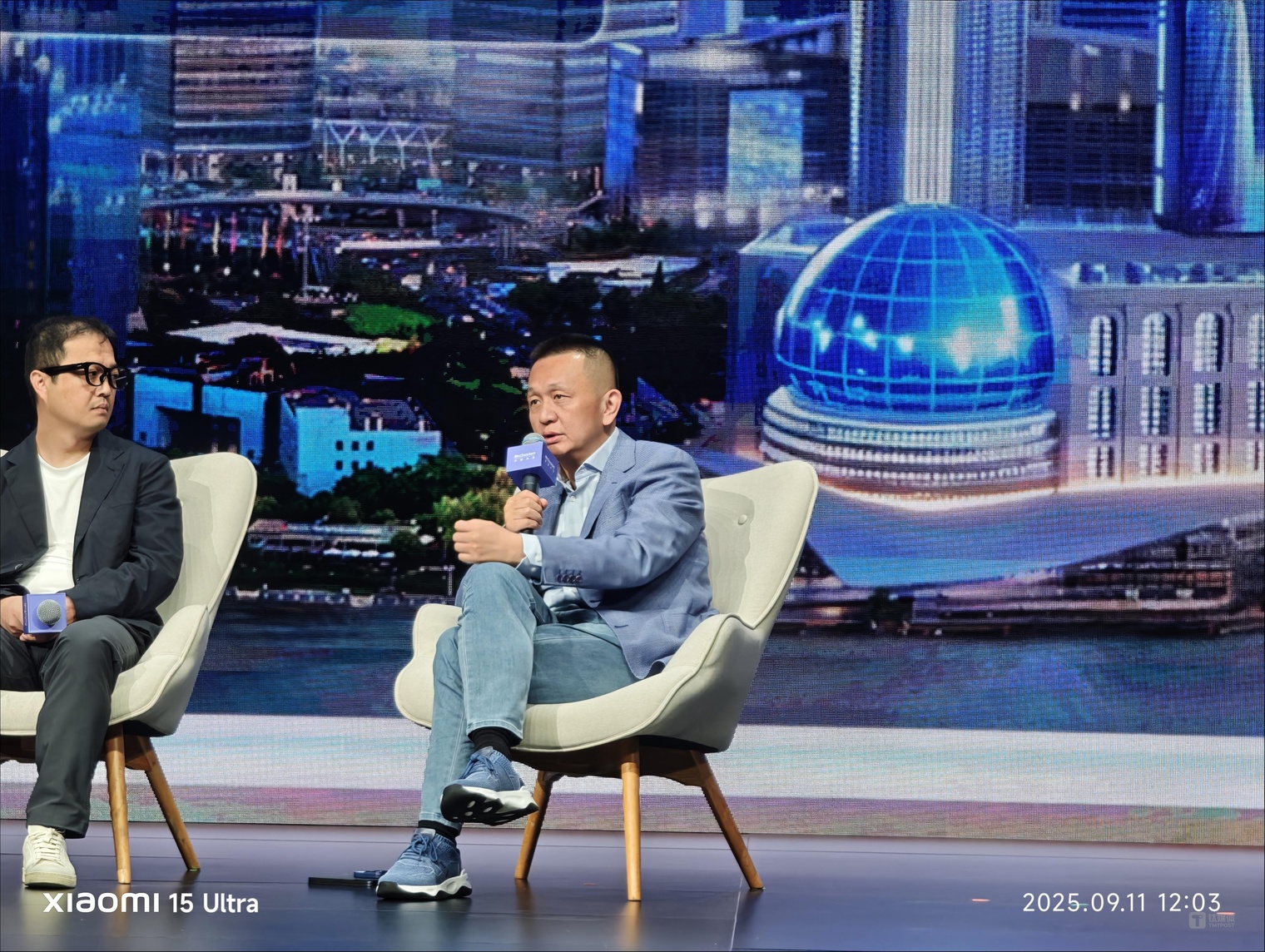
According to public data, from 2025 to the present, global AI startups have raised as much as $122 billion in venture capital, with the U.S. market accounting for $104.3 billion—85.5% of the total funding.
In Zhus opinion, one key metric for evaluating whether an AI startup is worth investing in is user retention. 「As we enter the AI era, many people are willing to try new things, but whether users stick around determines the company』s long-term growth potential.」
「Projects that are easier to commercialize may not have the most 『sexy』 technology and might even seem a bit boring,」 Zhu added. He pointed out that AI startups best suited for commercialization often feature stable technology.
In his view, the best example of AI commercialization globally last year was meeting summary applications, with Abridge in the U.S. and Plaud.ai in China both performing exceptionally well.
Zhu pointed out that when pursuing commercialization, there』s no need to blindly follow the latest or most flashy technologies. Instead, one should choose relatively stable and mature technological directions. For example, Plaud.ai has already reached a valuation of over a billion dollars and there are further investment plans in place.
When asked whether AI language models will 「replace」 all software, Zhu believes that as long as there remains even a 1% hallucination problem, AI cannot fully replace humans. 「In the future, simple coding tasks will definitely be 『taken over』 by AI, but in complex, highly systematic domains, AI simply won』t be able to solve everything.」
Regarding the AI markets in China and the U.S., Zhu shared an important observation: In his recent review of AI investments in both countries, among the fastest-growing companies, six of the B2B companies were mostly American and all had foreign founders, while the four Chinese founders were all focused on B2C.
Zhu believes that AI and software will coexist and complement each other. The tedious and labor-intensive tasks that large companies are unwilling to do present opportunities for Agent startups. From an investor』s perspective, the first thing they avoid is collaborative software, as this market is relatively small. Technologies that are easier to commercialize are those that are mature—last year it was meeting minutes, this year it』s Voice Agents. Chinese entrepreneurs are well-suited for B2C, and next year is sure to see an explosion of AI applications, presenting significant opportunities for Chinese founders.
Zhu emphasized that the US B2B market is growing rapidly, while Chinese entrepreneurs are better suited for B2C. Next year will undoubtedly see a surge in AI applications, offering great opportunities for Chinese founders. This is because, as the B2B sector scales up, it requires local sales teams.
On whether a super app will emerge in the future and its relationship with intelligent agents, Zhu Xiaohu stressed that an AI-powered super gateway is bound to appear, but further development will require more opportunities. During the US mobile internet era, only a handful of large companies emerged; this wave of AI development and implementation needs to be closely integrated with specific scenarios.
Zhu expressed disappointment with Apple』s AI, stating, 「Siri』s AI is really underwhelming.」 He believes Siri cannot yet be considered a super gateway.
Zhu emphasized that each cycle is quite similar: last year was hardware, this year is AI infrastructure, and next year will definitely see an explosion of applications. The next ByteDance, Kuaishou, or Xiaohongshu has probably already been founded this year.
Han Xinyi: AI Will Not Replace Doctors
At the Bund Conference, Han Xinyi shared Ant Group』s insights and practices in the field of AI-powered healthcare.
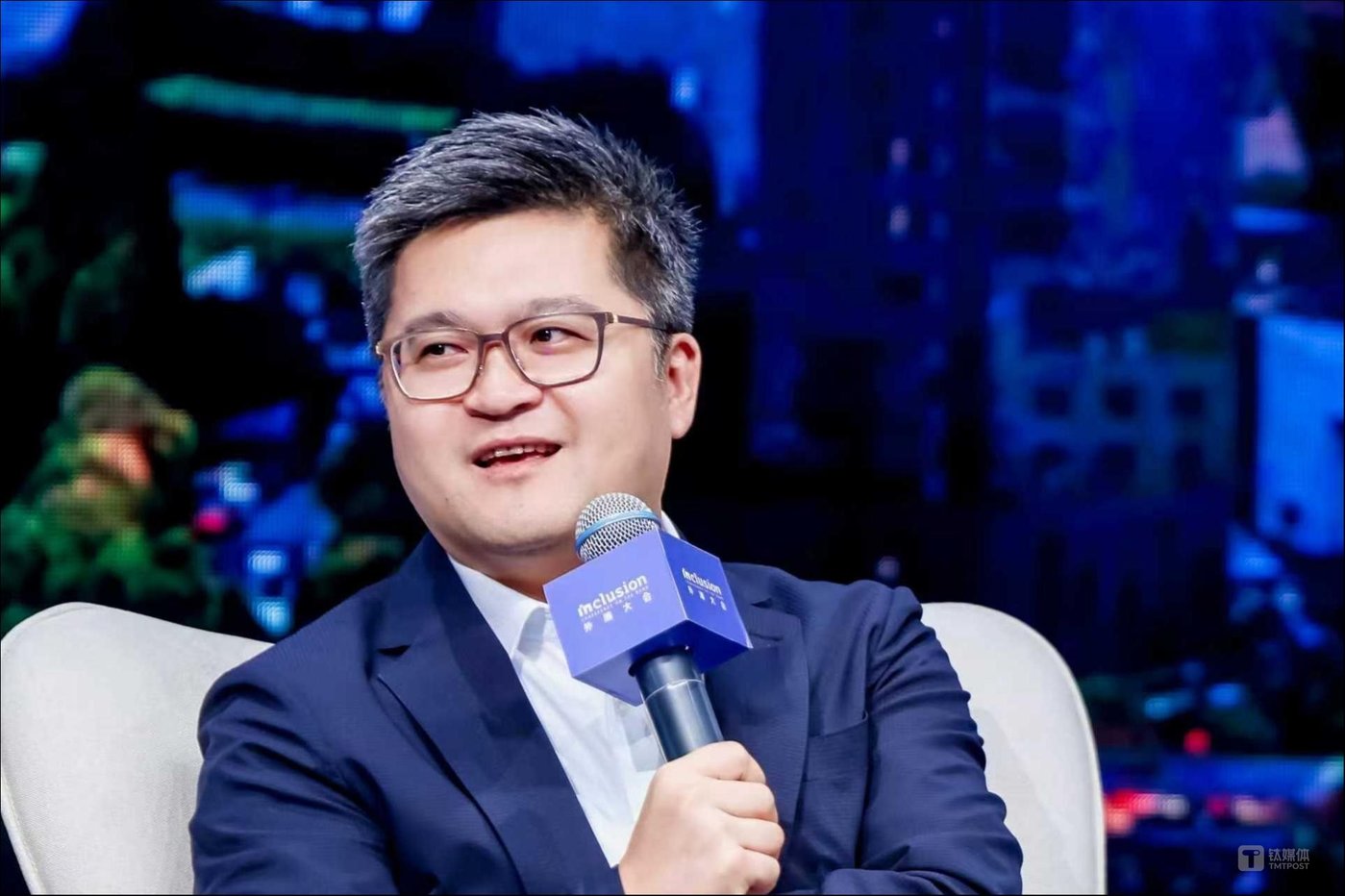
Han said that professional expertise is the core competitive edge of vertical models, and that general-purpose models are unlikely to replace them in the short term. Ant Group is committed to addressing key challenges such as data, hallucinations, and ethics, aiming to make AI a valuable assistant to doctors. While medical treatment itself is a low-frequency activity, health management is a high-frequency need. The combination of the two creates fertile ground for AI to provide in-depth services.
Han further explained that the ultimate goal of AI in healthcare is to offer personalized, precise, and trustworthy advice—just like a professional doctor. This includes understanding users』 physical conditions, making appropriate medication recommendations, and providing ongoing health management.
「Will AI replace doctors?」 In response to this industry hot topic, Han's answer was clear and firm: 「For a very long time, AI will not be able to replace doctors. Instead, it should serve as an assistant to doctors.」
Han emphasized that Ant Group is dedicated to using AI to provide crucial support for doctors: helping specialists expand their capabilities and move closer to becoming 「general practitioners」; establishing a healthcare laboratory to explore cutting-edge applications such as AI-powered MDT (multidisciplinary team) consultations.
「The only way forward for AI in healthcare is human-machine collaboration,」 Han said. 「We hope to enable top doctors to extend their expertise, allowing them to focus more on research and complex cases, while also providing frontline doctors with powerful assistants.」
Although healthcare is already a multi-trillion yuan market, Han noted that Ant Group is not in a hurry to commercialize in the coming years. Instead, the focus will be on building up professional data, curbing model hallucinations, and establishing medical ethics. He believes that as long as the service is professional and trustworthy enough, users will naturally stay.
It is reported that since 2023, Ant Group has accelerated its exploration of AI in healthcare, launching the AI Health Manager AQ in June this year. The service now has over 140 million users across all platforms, connects with more than 5,000 hospitals and nearly one million real doctors nationwide, and has helped over 300 top doctors create their own AI avatars.
On Thursday afternoon, Han publicly discussed the token economy for the first time.
Han made it clear that Ant Group firmly refuses to issue virtual currencies or participate in any form of speculation. He emphasized that compliance is the lifeline of innovation, and the group always focuses on technological development, serving the real economy, prioritizing risk control, and striving to create new value rather than fighting over the existing pie.
Han pointed out that the development of the token economy must be deeply integrated with the real economy in order to unlock its true value. According to Han, the global scale of native Web3 assets has now exceeded $3.8 trillion, but most of it remains at the stage of speculation and value storage, lacking deep interaction with real-world industries. If tokens are only circulated within the virtual world, their value will be extremely limited.
Over the years, Ant has continuously explored the token economy, especially in the past year by advancing RWA (Real World Assets) sandbox practices, aiming to use technology to drive the efficient circulation and value connectivity of real-world assets.
Han stressed that the token economy is still in its exploratory phase, and a long-term study is needed to fully understand its value and risks. He stated, "Steady and sustained progress is more important than simply pursuing speed and novelty."
It is reported that during the Bund Summit, Alipay also announced that its user base has surpassed 200 million, with more than 1,000 scenarios now supporting the "Tap to Pay" feature, and nearly 100 million people have used various "Tap to Pay" services. At the event, Alipay launched the nation』s first AI-powered payment service, "AI Pay," marking the industry』s first seamless integration of ordering and payment within AI agents, delivering a frictionless AI service experience.
Han previously emphasized that Ant hopes to truly provide users and partners with a revolutionary, next-generation experience and a core competitive advantage. He said, "We are driven by passion, succeed through collaboration, and ultimately innovate—using innovation to create a new horizon for Ant』s next decade and for the next decade of technology."


